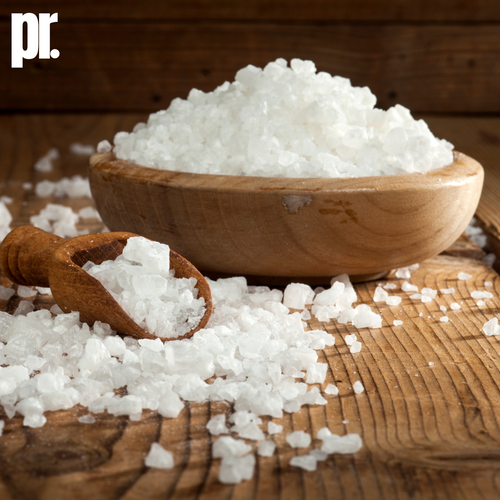Salt | Unveiling the Truth, A Crucial Element in Exercise & Hydration

In the health and fitness world, there are often conflicting opinions, myths (and outright falsities) surrounding salt. While conventional wisdom leads many to believe that salt is the enemy, the truth is far more nuanced. Here, we will explore the relationship between salt, exercise, and hydration to uncover the reality behind this essential dietary component.
The Role of Salt in Hydration & Performance:
Contrary to [very] popular belief, salt is not the enemy of hydration. It is pivotal with respect to maintaining optimal fluid balance within the body. Sodium, a key component of salt, (terms commonly – and incorrectly – used interchangeably. See difference at the bottom) is an electrolyte that helps regulate water distribution, ensuring that cells maintain their proper function.
During exercise, especially intense or prolonged sessions, the body loses essential electrolytes through sweat. Sodium is one of the primary electrolytes lost. Its depletion leads to dehydration, muscle cramps, and impaired performance. Therefore, it's crucial to replenish sodium levels to support hydration.
Sodium is not only essential for maintaining hydration, but also plays a direct role in optimising overall performance. Appropriate electrolyte balance supports nerve function and muscle contractions. Athletes and fitness enthusiasts engaged in strenuous activities will benefit from a controlled intake of salt to ensure their bodies function at their best.
Finding the Right Balance:
While it is now evident that salt is not the arch-nemesis of hydration and performance, it is still extremely important to practice moderation. Excessive salt intake can contribute to high blood pressure, cardiovascular issues, and water retention. Striking the right balance is essential for optimal health.
Practical Tips for Managing Salt Intake:
- Stay Hydrated | Adequate water intake is crucial to balance salt levels. Aim to drink water throughout the day, particularly during and after exercise.
- Quality Salts | Choose minimally processed salts like Sea Salt or Himalayan Salt, which contain additional minerals that can contribute to overall health.
- Monitor Electrolytes | Consider using sports drinks or electrolyte supplements during intense workouts. These significantly help to replenish lost sodium and maintain electrolyte balance.
- Listen to Your Body | Everyone has individual requirements, so pay attention to your body's signals. If you are craving salty foods, it may indicate a need for electrolyte replenishment.
Conclusion:
Salt is not the enemy it's often made out to be in the context of exercise and hydration. When approached mindfully, salt can be a valuable ally in supporting optimal performance and preventing dehydration-related issues. As with any aspect of nutrition, balance and moderation are key. By understanding the truth about salt and its role in the body, we can make informed decisions to enhance our overall health and fitness journey.
